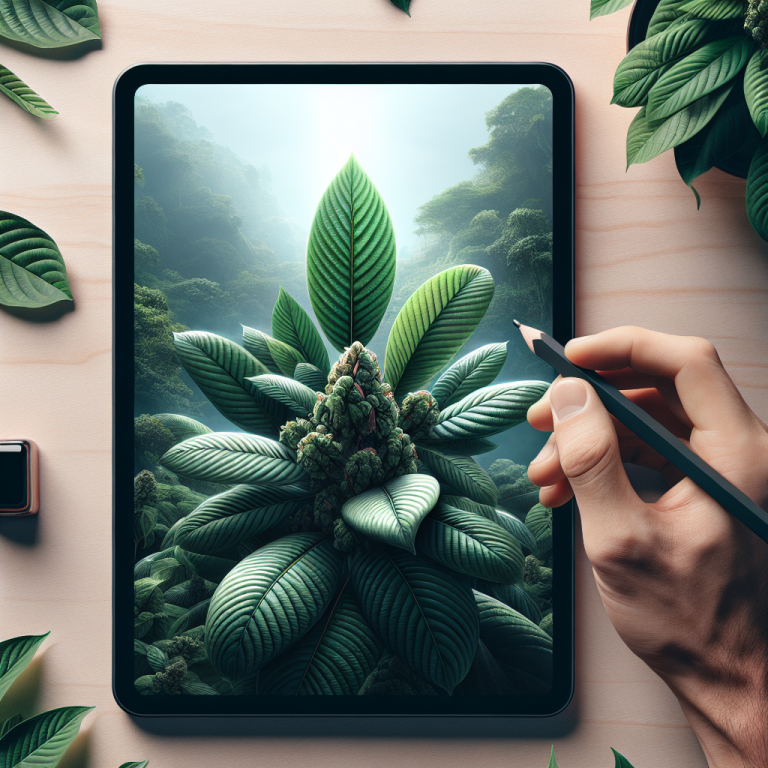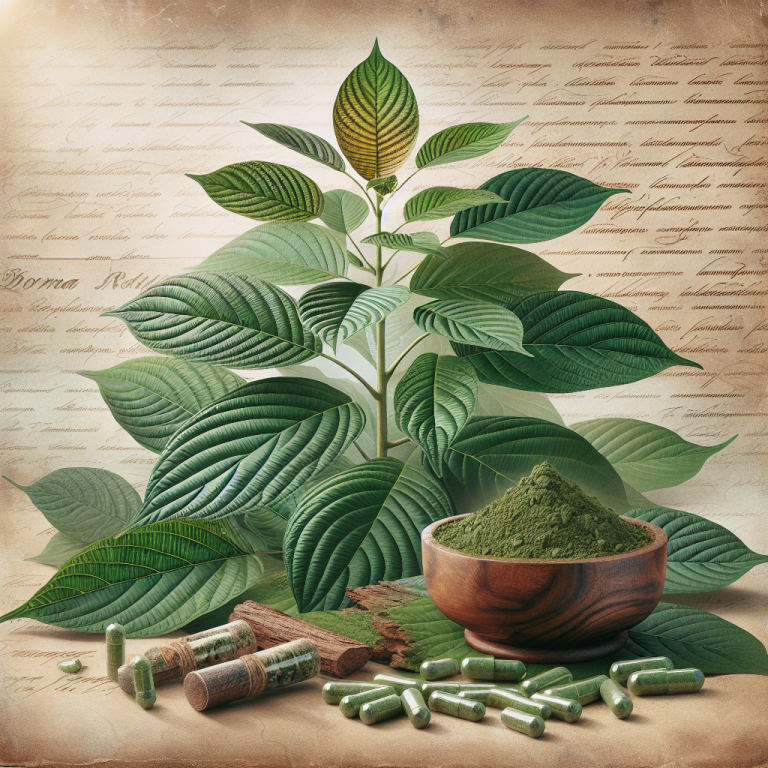
Understanding Kratom and Caffeine
Kratom, derived from the leaves of the Mitragyna speciosa tree, has gained attention in recent years for its potential effects on mood, pain relief, and energy levels. Traditionally used in Southeast Asia, it now finds a global audience. Meanwhile, caffeine, the world’s most popular stimulant, is beloved for its ability to increase alertness and enhance focus. But what happens when these two substances mix? Let’s explore the interaction between kratom and caffeine.
The Basics of Kratom
Kratom has a complex profile of effects. As a stimulant at lower doses, users often report increased energy and heightened alertness. Conversely, at higher doses, it can produce sedative effects, leading to relaxation and pain relief. The active compounds in kratom, primarily mitragynine and 7-hydroxymitragynine, interact with opioid receptors in the brain, which influences these varying effects.
Consuming kratom can lead to feelings of euphoria for some users. However, effects vary based on individual tolerance, dosage, and the specific strain of kratom taken. Some popular strains include Maeng Da, Bali, and Borneo, each known for distinct effects.
Understanding the constituents of kratom and their impacts helps users navigate its use more safely and effectively. This understanding sets the stage for discussing how kratom interacts with other substances, particularly caffeine.
The Role of Caffeine
Caffeine primarily functions as a central nervous system stimulant. Its effects kick in relatively quickly, often within 15 minutes of consumption. For many, caffeine improves mental clarity, enhances physical endurance, and boosts mood.
Widely found in coffee, tea, energy drinks, and supplements, caffeine is generally safe for most people when consumed in moderation. However, overconsumption can lead to side effects like jitteriness, anxiety, and insomnia. Knowing one's limits is crucial for minimizing adverse effects.
Both kratom and caffeine can influence energy levels and mood, prompting questions about their combined effects. Let's explore how they interact.
How Do Kratom and Caffeine Interact?
Understanding the potential interaction involves examining both substances closely. When consumed together, the effects of each may amplify or counteract the other. Users report mixed experiences when combining them.
On one hand, some individuals find that kratom may smooth out the jittery effects of caffeine, providing a more balanced experience. This combination can result in increased energy without the anxiety that caffeine sometimes induces. Users often appreciate this synergistic effect, making them feel more focused and motivated.
On the other hand, mixing the two can lead to unpredictable results. Each person's unique metabolism and biochemistry play crucial roles. For some, combined use might exacerbate negative side effects, such as increased heart rate or anxiety. Therefore, approaching this combination with caution is essential.
Possible Benefits of Combining Kratom With Caffeine
Many users seek synergistic benefits of combining kratom and caffeine. The following points illustrate these potential advantages:
- Enhanced Energy Levels: Many users report a boost in energy, leading to increased productivity and motivation.
- Improved Focus: The combination may help sharpen focus, making it easier to tackle complex tasks.
- Mood Elevation: Users may experience improved mood and a reduction in feelings of fatigue or lethargy.
Despite these potential benefits, moderation is critical. Finding the right balance can take some time, so listening to one's body is essential.
Potential Risks of This Combination
While some users enjoy the effects of mixing kratom with caffeine, there are notable risks involved. Awareness of these risks enhances safety and promotes informed decisions.
- Increased Heart Rate: Both substances can elevate heart rate, leading to discomfort for some individuals.
- Anxiety and Jitters: Excessive use may result in heightened anxiety, particularly in those sensitive to caffeine.
- Dependency: Regular combination can lead to dependency, maintaining a balance is vital.
Understanding these risks equips individuals to make informed choices about consumption.
Dosage Guidelines for Safe Use
If you decide to combine kratom and caffeine, knowing the appropriate dosages can significantly reduce risks and enhance effects. While individual tolerances vary, here are some general guidelines:
| Substance | Typical Dosage | Notes |
|---|---|---|
| Kratom (stimulant dose) | 1-3 grams | Start at the lower end to assess tolerance. |
| Kratom (sedative dose) | 4-6 grams | Use with caution to avoid adverse effects. |
| Caffeine | 50-200 mg | Commonly found in a cup of coffee. |
These ranges serve as starting points. Experimenting within these limits helps ensure safety and effectiveness.
Personal Experience: Testimonials and Observations
Many users share their experiences with kratom and caffeine. These testimonials enhance understanding of potential outcomes, both positive and negative.
- Positive Experience: Some individuals report feeling energized and motivated. They find that kratom softens caffeine’s harsh edges, allowing for a smoother experience.
- Negative Experience: Others recount feelings of anxiety and restlessness. For them, the combination proved to be too stimulating, leading to discomfort.
These stories illustrate the importance of listening to your body and making adjustments as necessary.
Factors Influencing Individual Responses
Several factors influence how one might react to the combination of kratom and caffeine. Recognizing these variables can help you tailor your approach for optimal effects.
- Body Composition: Body weight, metabolism, and fat distribution can affect how substances are processed.
- Tolerance Levels: Regular use of either substance can change how your body responds.
- Pre-existing Conditions: Individuals with certain health conditions may experience amplified effects.
Reflecting on these factors increases the likelihood of a positive experience.
Duration of Effects
When combining kratom with caffeine, the duration of effects can vary significantly. Generally, caffeine’s effects may last 3 to 5 hours, while kratom can have lasting effects of 2 to 8 hours, depending on the strain and dosage. This variability means timing consumption is essential.
- Caffeine Peaks: Effects peak around 1 hour after consumption.
- Kratom Peaks: Depending on the dosage, kratom may peak in 1 to 2 hours.
Understanding these timeframes allows users to plan their consumption accordingly.
Legal Status and Safety Concerns
The legal status of kratom varies worldwide, with some countries banning its use outright. In contrast, caffeine is widely accepted and consumed globally. This legal disparity draws attention to potential safety concerns regarding kratom use.
The FDA has not approved kratom for medicinal purposes, and continued research is necessary to assess its long-term effects. Ensuring source quality is essential, as kratom products can differ significantly in purity and potency.
Conclusion
Combining kratom with caffeine can yield varied effects, enhancing energy and mood for some while causing anxiety or discomfort for others. Keeping dosages moderate and being mindful of personal limits improves the likelihood of a positive experience.
Always consider personal factors and consult healthcare professionals when necessary. Staying informed empowers better decision-making surrounding kratom and caffeine use.
Experiment carefully, and always prioritize safety.
Frequently Asked Questions
-
Can I take kratom and caffeine every day?
Moderation is key. Daily use can lead to dependency and increased side effects. -
How long do the effects last?
Caffeine typically lasts 3-5 hours, while kratom can last between 2-8 hours. -
What if I feel jittery after combining the two?
If jitteriness occurs, stop consuming and hydrate. Reducing the dosage may help in the future. -
Is kratom legal in my state?
Legal status varies. Check local regulations for accurate information. -
Can I mix different types of kratom with caffeine?
Yes, but be cautious. Different strains have varying effects; start with small amounts. -
What are the best times to use kratom and caffeine?
Use in the morning or early afternoon for energy and focus without affecting sleep. -
Can caffeine reduce kratom's effects?
Some users find it balances out the effects, possibly reducing sedation. -
Are there any alternatives to kratom?
Yes, alternatives like natural nootropics or other herbal supplements exist. -
How do I choose the right kratom strain?
Research various strains and select one based on desired effects (e.g., energy vs. relaxation). -
Should I consult a doctor before using kratom or caffeine?
Yes, especially if you have underlying health conditions or take medications.
References
- National Institute on Drug Abuse (NIDA). Kratom: A Highly Misunderstood Substance
- Mayo Clinic. Caffeine: How Much is Too Much?
- WebMD. Kratom: Safety and Risks





